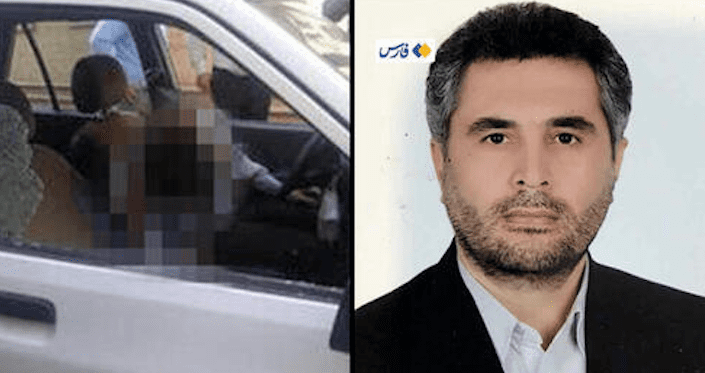Opinion: The successful assassination, attributed to Mossad, of Col. Hassan Sayyad Khodayar reveals yet again how fragile the Iranian regime is; but ayatollahs haven’t had the last word on this affair just yet
In recent years, Unit 840 operated under Khodayar’s directives mainly to attempt and harm Israelis and Israeli institutions across the world in order to avenge killings of Iranian nuclear scientists and other officials – all attributed to Israel’s secret service agency Mossad.
The most recent assassination was that of Prof. Mohsen Fakhrizadeh back in November 2020. Fakhrizadeh was an Iranian nuclear physicist and scientist and was regarded as the godfather of Iran’s nuclear program.
Fakhrizadeh was eliminated before completing the nuclear project, and the frustrated Revolutionary Guard commanders swore to avenge his death. However, so far, despite repeated attempts, they have not succeeded.
The person who was in charge of avenging his death was was Col. Hassan Sayyad Khodayar. Over the past two years he had tried again and again, but failed every time due to Mossad’s effective intelligence gathering capabilities, and the cooperation of foreign security services.
Khodayar’s preferred method to extract revenge was clandestine assassinations that couldn’t be traced back to the Iranian regime. But, the Iranian intelligence and Revolutionary Guard Corps have often made things difficult for Tehran on the international arena by carrying out sloppily executed attacks in Europe, South America, and Asia.
Many of these assassination efforts failed and damaged not only Iran’s image – at home and abroad – but also the country’s international economic ties, causing significant losses along the way.
That’s probably why Khodayar recently developed a new method of operations. In recent years, the assassins have almost always been hired foreigners, usually recruited by Unit 840 operatives to carry out the deadly missions.
The Iranians also wanted to exact revenge on Israel for killing of Iranian officers in Syria, where Tehran wants to establish a frontier in cooperation with pro-Iranian Shi’ite militias.
Among operations Khodayar and his men were responsible for in the past three years were the murders of Israelis in Tanzania, Ghana, and Senegal, as well as an attack on an Israeli institution in Colombia’s capital of Bogota.
In addition, there were also attempts to kill businessmen and high-tech personnel in Cyprus, a murder attempt in Georgia, and an attack on the Israeli embassy in Azerbaijan.
There was also an attempt to murder the Israeli consul in Istanbul, Turkey, by an agent who, according to foreign sources, was recently captured by Mossad operatives in Iran. He had been interrogated by them and allegedly said that besides the consul, he was supposed to also murder an American general and a French religious man – among other targets.
Therefore, it is no wonder that after years of Khodayar acting as a senior officer in Unit 840, officials in the region have come to the conclusion that it is no longer possible to not preemptively defuse this ticking bomb. The concern was that one day he might be able to outsmart the Israeli intelligence and successfully execute one of his plans.
It is likely that in order to minimize the probability of this happening, it was decided to eliminate him before he could cause harm to anyone.
Iranian President Ebrahim Raisi on Monday expressed his condolences to Khodayar’s family – and pointed a blaming finger at the “global arrogance” – which is a term used to describe the United States and its allies, including Israel. According to Raisi, “those who were defeated in battle by the forces defending the holy places of the Shi’ite Muslims in Syria, express their frustration with such assassinations”.
The president emphasized that Iranian security officials will “surely avenge the criminals who are behind the death of the martyr”. Thus, it should be assumed that Unit 840 and other elements of the IRGC will do everything in their power to fulfill that threat. But in the meantime, they’re trying to deal with the shame and humiliation they’ve suffered as a result of the assassination.
It is very likely that Iran’s semi-official report on Sunday that members of an Israeli intelligence service network had been exposed and arrested by the IRGC, was a desperate attempt to cover up that embarrassment.
It was not the first successful assassination conducted by foreign forces on Iranian soil, making it seem the regime is struggling to thwart them, which in turn may also embolden the opposition elements at home.

